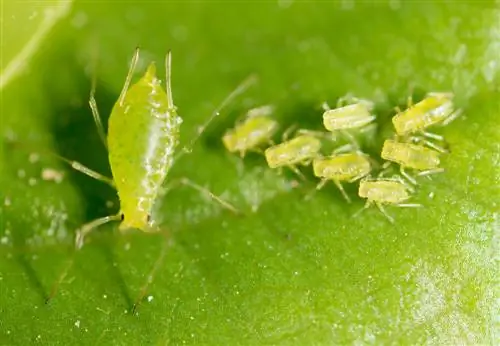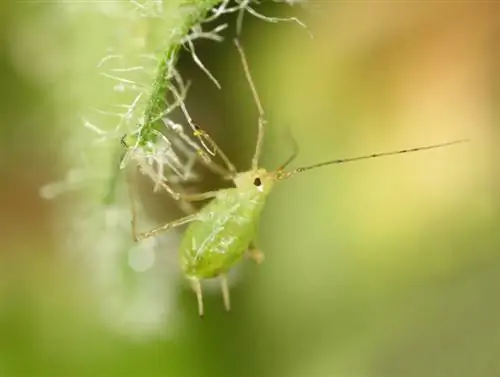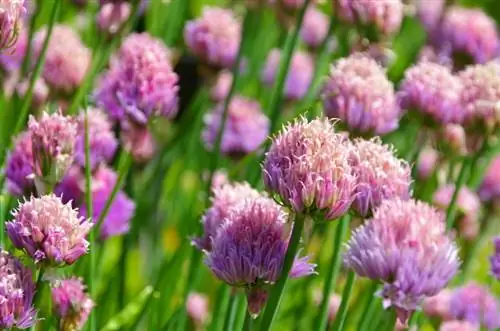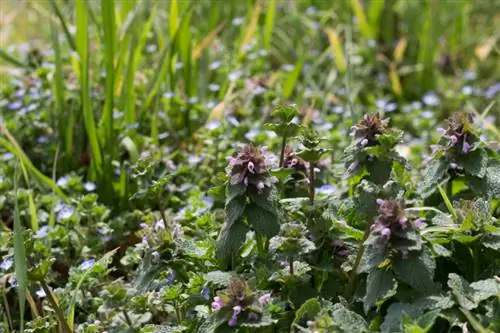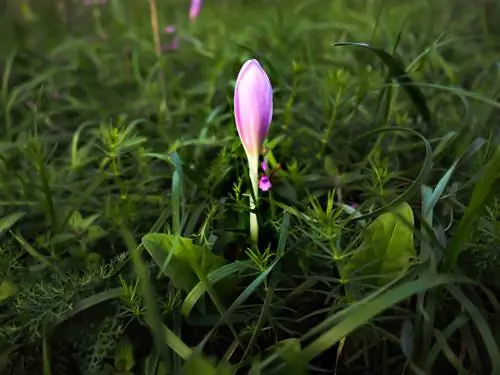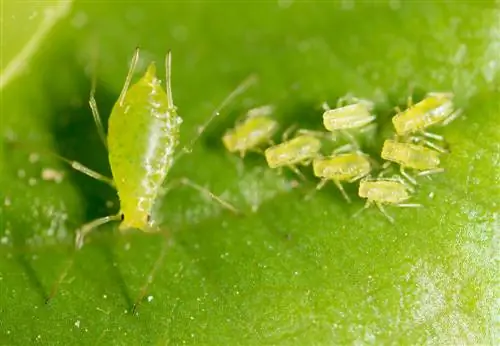- Author admin leonars@hobbygardeners.com.
- Public 2023-12-16 16:46.
- Last modified 2025-01-23 11:21.
They are a real pest on crops and ornamental plants: Aphids don't stop at loquats either. If the tree has been attacked, you need to act quickly. Simple measures help to get the plague out of the way.
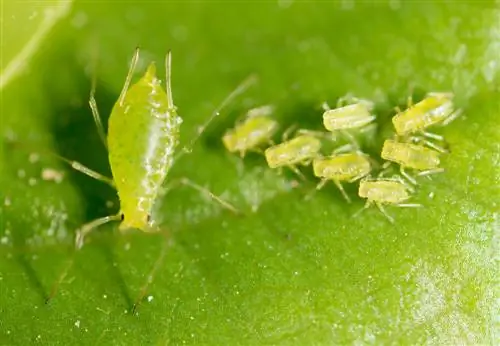
How can you control aphids on loquats?
To combat aphids on loquats, you can collect the lice by hand, spray the plant with a rapeseed oil/soft soap solution or apply an ecological mixture of neem oil (€12.00 on Amazon), water and emulsifier to inhibit the reproduction of pests. Strengthening through plant decoctions and the promotion of beneficial insects can help as a preventive measure.
Malicious images
Aphids are pests that feed on the sap of loquats. They pierce the leaf veins with their proboscis and extract the juice from the plant. At the same time, they inject saliva into the plant, which causes unsightly discoloration on the leaves. The pests can be seen with the naked eye on mostly young shoots and leaves. They only use part of the juice they absorb and separate the excess. A sticky coating is created. This so-called honeydew provides an ideal breeding ground for fungal spores.
Flying generations develop in summer and can attack other plants. If the infestation is severe, the discoloration on the leaves can spread. The leaves dry out and curl up. Buds dry out due to the lack of plant sap and fall off.
Combat
If the plant is not yet heavily infested, you can collect the aphids by hand. Another observation is important because the lice reproduce asexually. If a pest has been overlooked, it can quickly produce new offspring. To combat a more severe infestation, spray the plant with a solution of rapeseed oil and soft soap.
To inhibit the reproduction of aphids, you should spray the plant early in the morning with a mixture of neem oil (€12.00 on Amazon), water and an emulsifier such as Rimulgan. The oil is an ecological and non-toxic alternative. Its ingredients intervene in the metabolism of pests and interrupt the formation of chitin. As a result, the exoskeleton that supports the insects can no longer fully develop. The following generations have no chance of survival.
Prevention
Aphids prefer to settle on weakened and diseased plants. You can protect your medlar from infestation in advance. Regularly give the shrub a decoction of nettles, horsetail or tansy with the irrigation water. This supports the he alth of the plant and makes it more robust against pest infestation.
Other preventive measures:
- Promote beneficial insects such as ladybirds
- Planting perennials with essential oils like lavender
- Achieving mixed cultures
- fertilize with nitrogen for a short time

